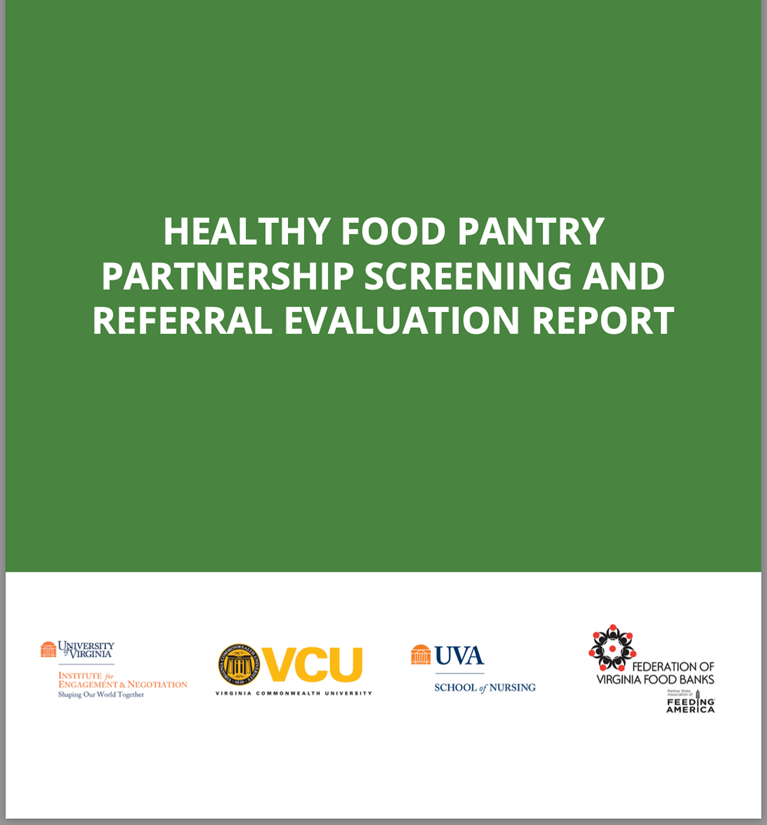HEALTHY FOOD PANTRY - PARTNERSHIP SCREENING & REFERRAL EVALUATION REPORT
In 2020, over 60 million people in the U.S. experienced hunger and food pantries nationwide distributed over six billion meals. The added stress of COVID-19 resulted in a 55% increase in food pantry visitors, and food pantries prepared to serve the equivalent of over 6.5 billion meals in 2021. While initially developed for emergency food aid, food pantries have become essential community resources, serving clients who do not qualify for federal nutrition programs or slip through the cracks of our social service networks. Food insecurity is associated with an increased risk of diet-sensitive chronic diseases, such as diabetes, hypertension, obesity, and nutrient deficiencies and malnutrition. As a result, hunger and health are being seen as increasingly interrelated issues.
Since its inception the charitable food system was designed to prioritize quantity over quality, and historically has not prioritized the nutritional quality of foods distributed. However, a healthy Food Pantry initiative, launched by the Federation of Virginia Food Banks (FVFB), aimed to change this. Virginia’s food banks and their pantry partners are working to ensure that their services are contributing to improved health outcomes for people facing hunger through programs like the Healthy Food Pantry Program and in-clinic food pantries. At the same time, the health sector is doing more to address patients’ social needs, or social determinants of health, by screening their patients and connecting them to the services and resources they need. For example, many health providers are screening their patients for food insecurity and referring patients that screen positive for food insecurity to their local food pantry (external referral), or to an onsite, health care-operated food pantry (in-clinic referral).
In partnership with Dr. Camille Burnett at Virginia Commonwealth University, and Ha Do Byon at the UVA School of Nursing, IEN was asked to evaluate the Healthy Pantry Initiative.
A collaborative partnership between the research team and the FVFB was forged to guide and support the successful implementation of this evaluation project. Due to COVID-19, the evaluation and its scope were paused, revised, and redesigned several times. The redesigned study began in September 2021 and was completed in August 2022.
The research team evaluated five food pantries and their partnership relationship with specific health care providers, to determine what was or was not working well in their screening and referral processes.
Because the goal for the Healthy Pantry Initiative was to improve access to nutritious food for food insecure individuals, the evaluation focused on what elements of the screening and referral processes were facilitating this access and what elements could be improved.
IEN’s role in this evaluative research was to conduct qualitative interviews and focus groups of healthcare professionals, food pantry staff, and pantry clients. With guidance from Tanya Denckla Cobb, graduate student Anne Nelson Stoner conducted 16 qualitative interviews of health care professionals, pantry staff, and pantry clients. Graduate students Sophie Delzell and Sarah Rizk coded and analyzed the findings, and together with Anne Nelson Stoner and the research team partners crafted the final report.
The report identifies opportunities and differences in screening and referral processes used to provide in-clinic pantry versus external referrals and their impacts; explores health care provider partners’ considerations for in-clinic pantry interventions; and identifies best practice approaches and recommendations for in-clinic interventions, partnerships, screening and referral.

